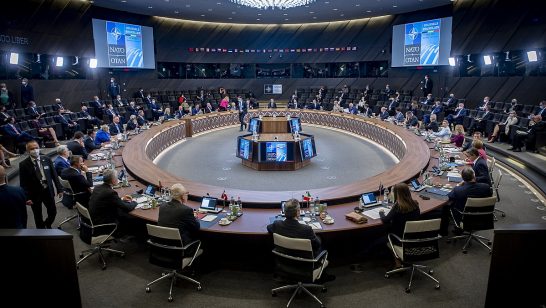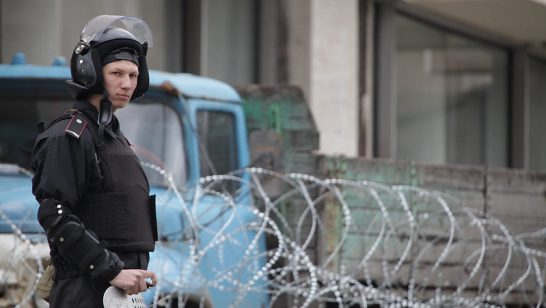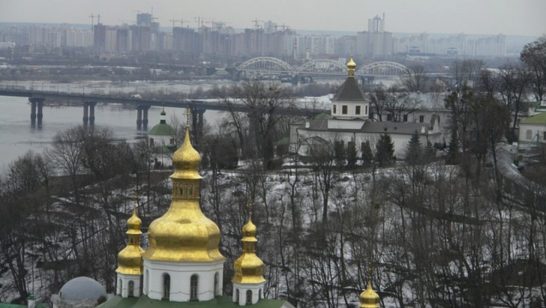
Russia’s invasion of Ukraine is set to fundamentally transform both the international system and the international order. The decision to start a war, framed by Vladimir Putin in terms of a security dilemma, was a bad response to Russia’s concerns about its interests. Putin’s month-long military campaign has demonstrated significant miscalculations and distorted perceptions by the Kremlin on many levels. Additionally, factors such as Putin’s personal record of handling international problems by force, systemic groupthink in the Russian establishment (which prioritises loyalty over critical thinking), traditions of strategic culture, and the Kremlin’s assessment of trends in global geopolitics all contributed to a decision which may prove to be the most devastating for Russia and international security in decades.
Scepticism about a possible Russian invasion of Ukraine before February 24th was well-grounded. Cost/benefit calculations indicated that the costs of a war for Russia would be too heavy while the probability of a Russian win was not high enough. The war bill would include not only the painful effects of promised Western sanctions but the price of the military campaign itself, Russia’s worsened international posture and likely domestic costs. Putin was facing considerable risk of undermining instead of improving Russia’s security as well as losing control over internal political stability. Meanwhile, the probability of success was hard to calculate, as is the case before most wars, but a simple look at Ukraine’s military experience in the years after the annexation of Crimea should have told Russian leadership that things might not go as easily as they did in 2014. The decision to invade was taken by a person who believed that doing nothing was equal to a defeat.
Those who didn’t believe Putin would take such a gamble, including myself, also referred to a bigger strategic picture. It seemed that there were no realistic or sustainable goals Russia could achieve by the invasion, even if it did manage a quick military success. Installing a puppet government in Kyiv would have required incredible efforts in the future with the final result quite unclear. Destroying the country’s military infrastructure, referred to by Putin as ‘demilitarisation’, could have been nothing more than a temporary achievement. Occupying some parts of the country would have been both costly and temporary. Any of these outcomes would have only worsened Russia’s strategic and security environment.
Given all of these factors, there is a temptation to turn to psychological explanations, very much in line with Angela Merkel’s famous assessment in 2014 that Putin was “out of touch with reality”. Understanding Putin’s logic is essential – and from now on not only for Ukrainians. Along with analysing Putin’s personality, where cognitive biases, his experience of more than twenty years in power, his authoritarian stance, and his goals for his image may have contributed to his decision; there must be some strategic considerations as well.
From a realist perspective, to which the Russian president seems to adhere, preventive wars mostly result from a perceived security dilemma. In his pre-war rhetoric, Putin put such a strong emphasis on the threat that NATO expansion posed to Russia’s interests that it may be seen as a plausible driver for a decision to invade. For a decision-maker with a realistic vision of international politics it may be quite difficult to escape a ‘Thucydides trap’. If one believes time is not on his/her side, a preventive war becomes much more likely. If one tends to mistrust others and sees no way to reach a sustainable agreement, a war may become a necessity. Logic like this is flawed, since the modern world offers a variety of ways out of the security dilemma. But Putin may have fallen victim to his own perceptual biases about Ukraine’s readiness to resist, the efficiency of military force and certain historic obligations that current Ukraine has towards Russia. He definitely overestimated the role of his personal take on the history of the Soviet Union and, probably, the Russian Empire in strategic decision-making.
Other factors may also have been important. A Ukraine out of Russia’s control might have been perceived by Moscow as a powerful instrument of political influence. Even outside NATO, Ukraine as a large democratic country in the neighbourhood was a dangerous symbol, a reminder that governments can be changed, both through elections and mass protest, if needed. Here, Putin’s own political interests may have been shared by his entourage. The Russian leadership might also have perceived the whole story as a dead end, as hopes for the implementation of the Minsk agreements were fading away, holding the occupied territories in Crimea and Donbas seemed to be a bad long-term option, and, as it turned out, no Ukrainian president has been ready to make the concessions to Moscow that the Kremlin desired.
The growing complexity of the situation could have made simple decisions attractive. But along with making a host of miscalculations, the Russian leaders responsible for the invasion didn’t take into account that stronger belligerents lose asymmetric wars much more often than it might seem by merely looking at the nominal balance of forces. A war has logic of its own, and now, the situation is no longer under the full control of the Russian president. No matter how the war ends, Moscow is unlikely to find itself in a better security environment, and Russia’s mistaken and felonious decision to invade Ukraine will make a wide range of states pay the price for an undermined international security order.
In the event that Russia ‘wins’ (i.e. imposes some of its demands upon Ukraine by force), revisionists, anti-Westerners and states that seek nuclear weapons are likely to have a louder voice in international politics. The international order will be transformed in a way that would make it quite possible to launch an unprovoked and unjust war. Several revisionist states may find such an order attractive while the rest will face increased security risks. In the event that Russia loses, there will be a chance to minimise the damage and return to a world in which direct application of military force is costly and thus rare.
Lowering the price for the Kremlin’s strategic mistakes could be achieved by:
- Support for Ukraine far beyond pre-war limits. Supplies of weapons and large-scale financial assistance are important, but not enough. The depth of the current crisis makes options which seemed unrealistic earlier quite possible. EU membership for Ukraine is among these options as a part of a broader peace settlement and security arrangement.
- Additional attention to the non-proliferation regime. Russia’s invasion has made nuclear weapons much more valuable in the eyes of many. It will be even more so if Russia succeeds in imposing its demands on Ukraine. Thus, additional efforts will be needed after the war to shape security guarantees for non-nuclear states and get back to as much responsibility as possible when talking about nuclear arms.
- Reconstruction of the European security architecture. Once again, Europe will have to start from the very beginning in building a normative and power basis for its own security. The current war will change the perception of traditional alliances, Russia’s containment and possible future threats. Thorough and attentive work at all levels will be needed to address these changes.
- More emphasis on China. Beijing is facing a tough choice. On the one hand, it needs to consolidate an alliance with Russia on the basis of competing with the West, which would lead it to desire Russia’s success in Ukraine. On the other hand, if China supports Russia, Beijing’s role as an alternative global leader that relies on principles of sovereignty and non-interference would be endangered. On a global level the war may be seen as a manifestation of power transition and a struggle for dominance. This is the moment for the US and China to shape their competition or rivalry. After all, China’s need for Russia as an ally may be outweighed by an overall increase of Beijing’s role in an updated version of the world order.
The war will continue to transform the world. Depending on when and how it ends, we will find out how far back history has rolled for Europe.
The opinions articulated above represent the views of the signatories and do not necessarily reflect the position of the European Leadership Network or the entirety of its membership. The ELN’s aim is to encourage debates that will help develop Europe’s capacity to address the pressing foreign, defence, and security policy challenges of our time.
Image: Ministry of Internal Affairs of Ukraine, Wikimedia.



